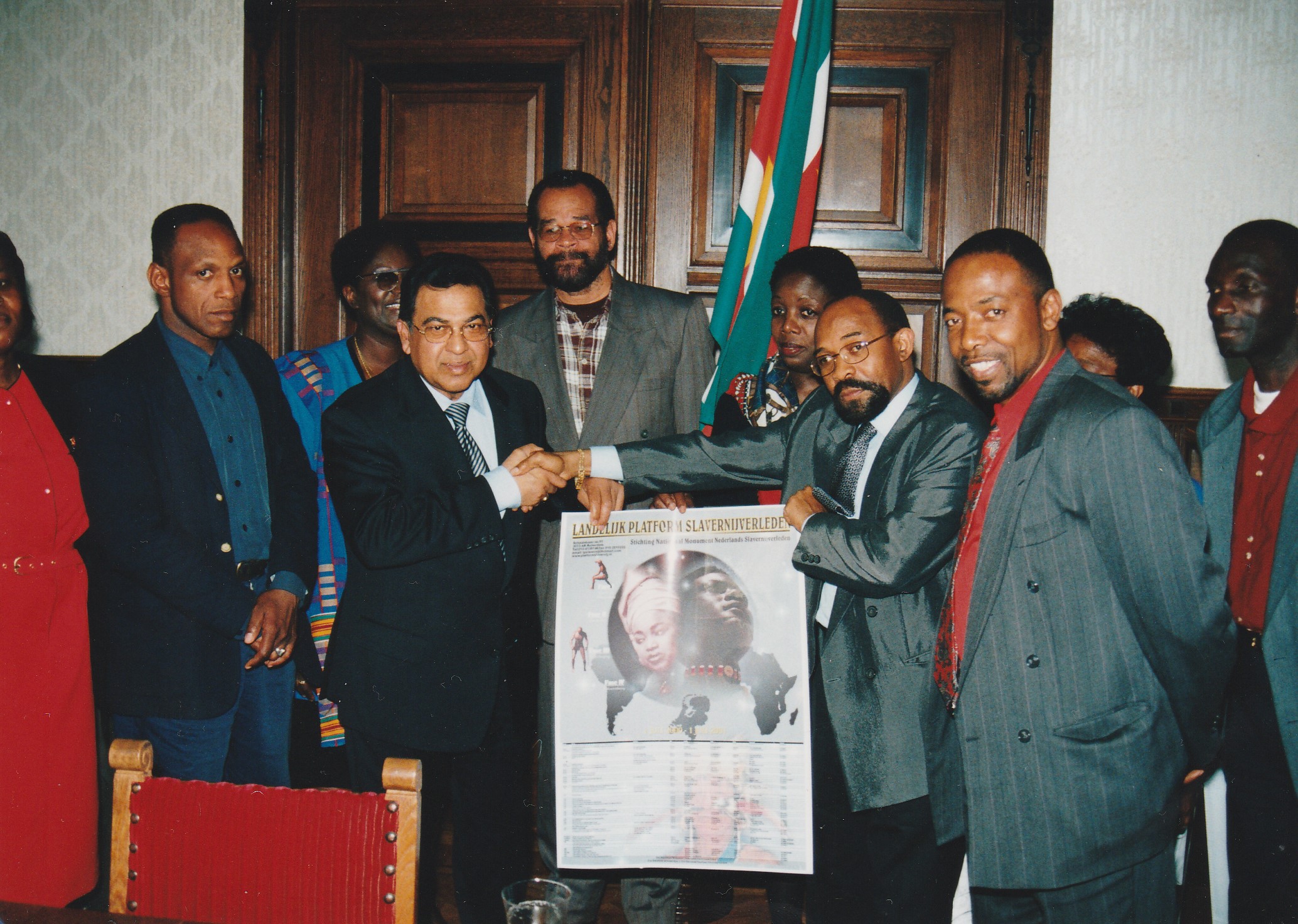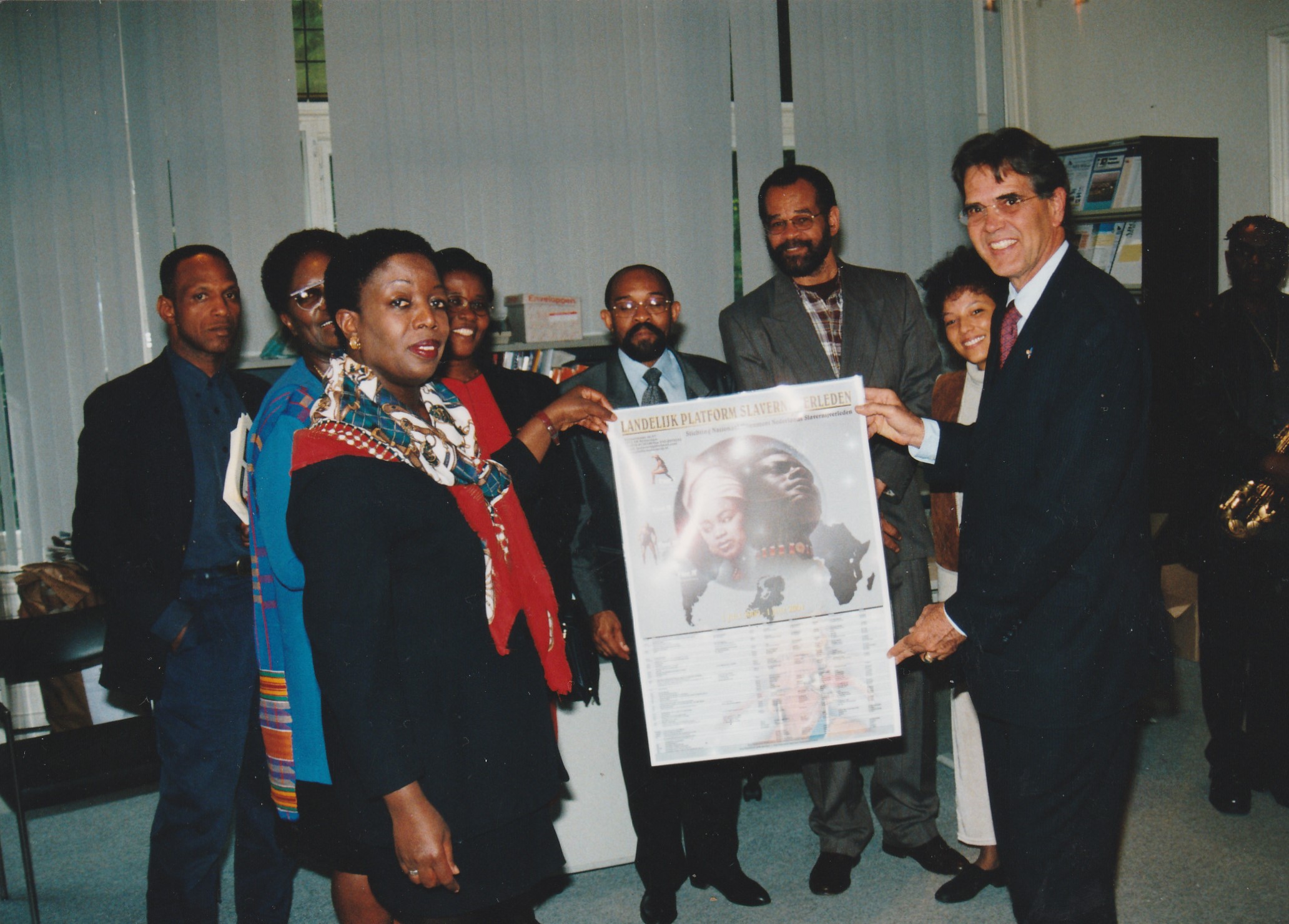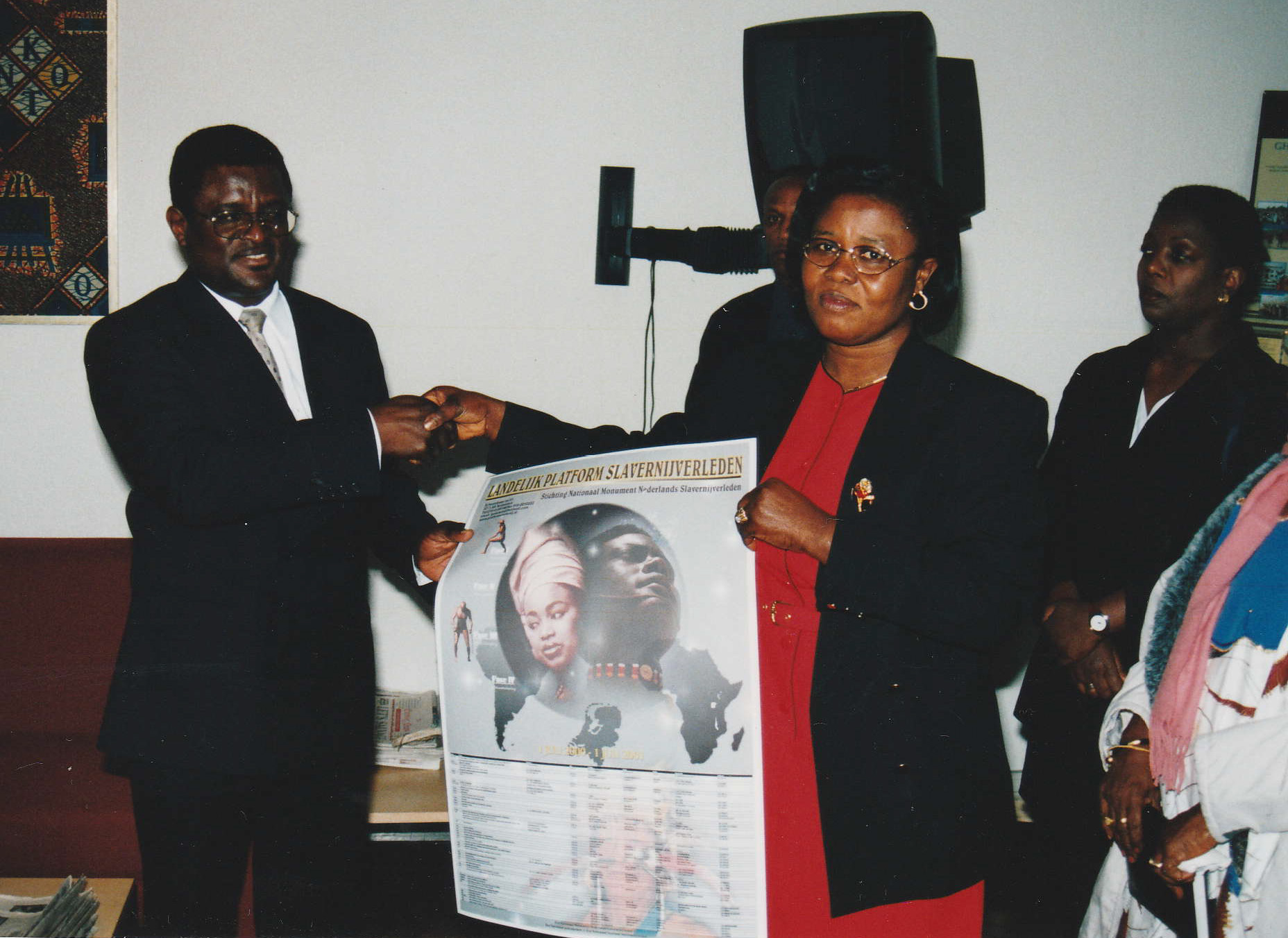Over Ons
Bundling
Establishment
The establishment of the foundation was preceded by: the presentation of a petition by the Afro-European Women's Movement Sophiedela on 3 July 1998. The petition calls on the Dutch Cabinet and Parliament to do everything they can to process the Dutch Slavery dossier.
On 14 May 1999, the National Platform for Slavery History was established. On 8 December 1999, the formalisation took place in the form of the establishment of the Foundation National Monument Dutch Slavery History. The foundation is known as the National Platform for Slavery History, abbreviated as LPS.
The foundation focuses on objectives that should lead to an adequate settlement of the Dutch slavery file. The objectives include the creation of a national static and dynamic monument to commemorate and process the Dutch slavery past in the Netherlands and in all other areas where the Netherlands has practiced slavery and that give this Dutch history a visible place.
In the Netherlands, the National Slavery Monument was unveiled on 1 July 2002 in the Oosterpark in Amsterdam, Watergraafsmeer, as an identification and anchor point for the commemoration of the victims of the Dutch Slavery past.
On June 24, 2002, the institute was founded (for the purpose of a consistent and coherent processing process as a materialization of the dynamic dimension) by the chairman of the National Platform Slavery Past. The Institute was given the name National Institute Dutch Slavery and Heritage, NiNsee.
Creating space and attention within Dutch society for the history, traumas and contemporary legacy of the slave trade and slavery that took place under Dutch responsibility in the Atlantic area.
The awareness of the own cultural identity of the African descendants (Africans in diaspora) and Indigenous people. The promotion of understanding between Western and non-Western cultures and population groups.
The (causing) implementation of the UN Durban Declaration and the Programme of Action (DDPA 2001) and all related UN Treaties and Resolutions in the context of combating racism, xenophobia and related intolerances, such as the Convention against all forms of Racism and Discrimination (CERD).
Carrying out research.
To carry out development activities that contribute to raising awareness about the transatlantic slave trade, slavery, colonialism and related issues.
The realization of local and international partnerships related to the settlement of the Dutch slavery file. This includes everything that contributes to the “repair” in connection with the crimes against Africa and African humanity, including combating the effects concerning the crimes against humanity.
Partnerships include: National Reparation Commission Suriname (NRCS); the Pan-African Reparations Coalition Europe (PARCOE) and the European NGO Consultative Council on African Reparations (NGOCCAR).
Attending and organizing: (consultation) meetings, including on human rights issues; workshops, congresses and conferences that are important for the processing of the slavery dossier as organized by relevant (international) human rights bodies and Pan-African movements.
Providing information to, organizing and mobilizing the supporters of the Foundation and others of Good Will.
Writing (policy and political influencing & protest) letters and statements to competent authorities.
Choice of starting points for strategy: Multiple and African centered perspective
In the area of combating racism: the implementation of the UN Decade for People of African Descent by the Dutch government is the greatest challenge for the Foundation, with the implementation of the UN Durban Declaration and Programme of Action (2001) and related Resolutions at its core. The Foundation participates in the UN Decade Coordination Working Group Netherlands and provides the secretariat for the Working Group, including in the context of the Consultation with the government on the development of the National Decade Action Programme.
Important initiatives are in the field of: 1) the development of the NGO civil society position paper as a contribution to the development of the Dutch National Action Plan; 2) the Social Map of people of African descent and (scientific); 3) research in the field of Afrophobia for the purpose of adequate government anti-racism policy towards citizens of African descent.
In the area of empowerment: Identity-enhancing meetings are an important objective of the Foundation. In this context, the Foundation provides lectures and workshops, sometimes in collaboration with domestic and foreign experts and organizations.
In the area of commemoration and processing: commemoration and processing of the Dutch Slavery past is an important core objective of the Foundation and continuous focus area. Stimulates attention and organizes events itself. Well-known are the rootssynergy meetings
In depth: In the field of education and awareness: Human rights education through workshops, lectures and rootssynergy meetings in the field of the Dutch slavery past and making its effects clear; empowerment of the target group of people of African descent are continuous activities of the Foundation and processes that take place.
Action-oriented activities: conferences, demonstrations, protest meetings, lectures and workshops
Target group(s): The foundation focuses on various target groups and relevant other stakeholders. The main target group is the descendants of the enslaved.


